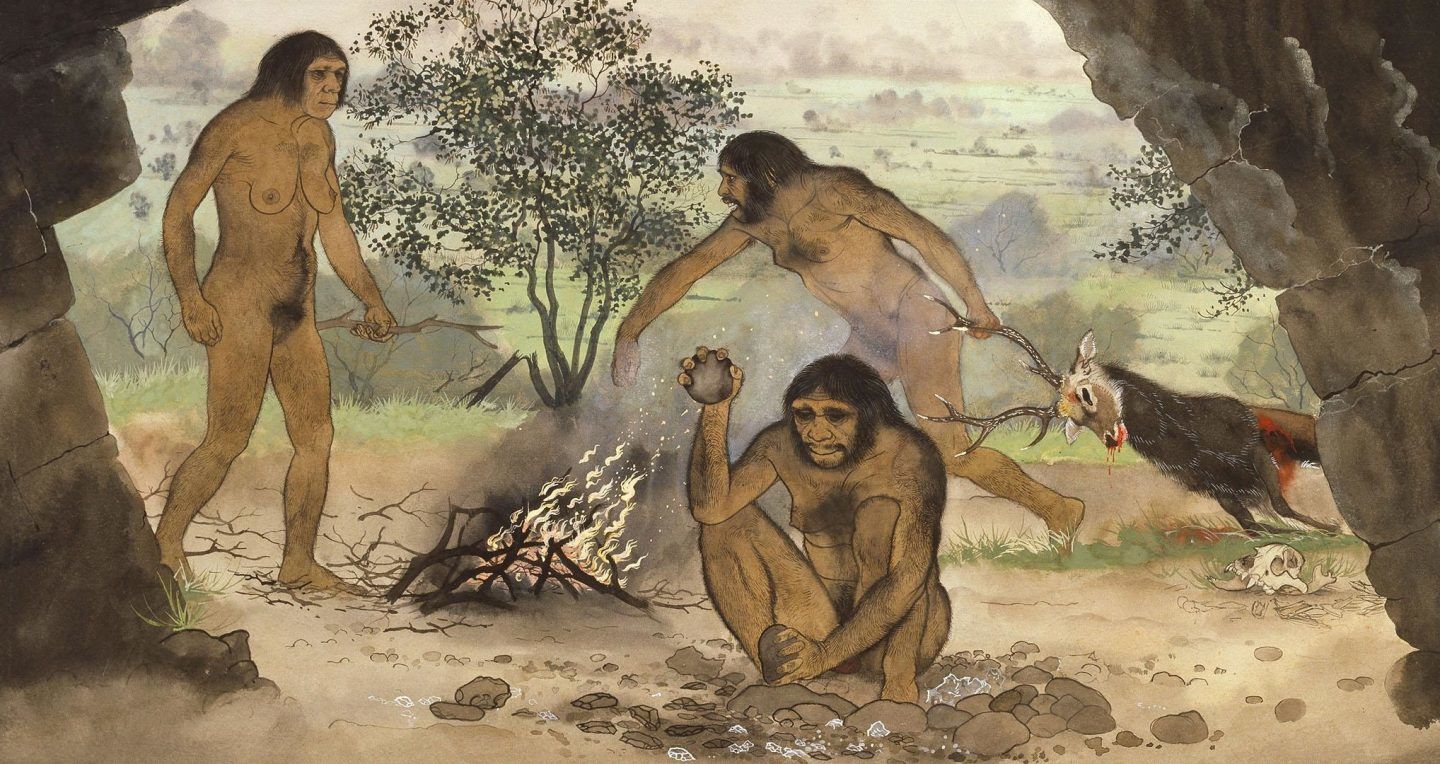You are using an out of date browser. It may not display this or other websites correctly.
You should upgrade or use an alternative browser.
You should upgrade or use an alternative browser.
Cleopatra Was Not Black
- Thread starter GURPS
- Start date
There is a long and ongoing discussion about this "documentary" in a Roman re-creation group to which I belong.
90% of the posts are about her documented Macedonian-Greek ancestry. A few others are "But, but, we really don't know..."
90% of the posts are about her documented Macedonian-Greek ancestry. A few others are "But, but, we really don't know..."
Can I just ask....why would I care whether Cleopatra was black or not?
Well there's reparations to consider..,,. And cultural appropriation.....Can I just ask....why would I care whether Cleopatra was black or not?
SamSpade
Well-Known Member
I sure don’t and I don’t care when she’s black in more recent TV shows and movies. But she wasn’t. The Ptolemies were Greeks. Macedonians. Not Africans. And we have carvings and sculptures.Can I just ask....why would I care whether Cleopatra was black or not?
What annoys me is when the opposite happens - when people get IRATE and shout racism when she is portrayed as looking Greek.
jrt_ms1995
Well-Known Member
1000000 BC

Wrong, Kyle! Anthropologists say 1,000,000 BC looked like this:
Well there's reparations to consider..,,. And cultural appropriation.....
and Black Jesus
Netflix Appropriates My Egyptian Heritage To Push Its Racial Narrative In ‘Queen Cleopatra’
The idea that ancient Egyptians were black has been thoroughly debunked. Evidence from ancient Egyptian mummies shows they are genetically similar to modern-day Egyptians.
Contrary to Afrocentric pseudo-historians, ancient Egyptians “contain almost no DNA from sub-Saharan Africa,” while “some 15% to 20% of modern Egyptians’ mitochondrial DNA reflects sub-Saharan ancestry.” The introduction of sub-Saharan people into North African populations dates to “about 750 years ago into Egypt” and may reflect “the patterns of the trans-Saharan slave trade that occurred during this period.”
In fairness, today’s Egyptians — like our ancestors — come in nearly all shades. Skin hues in my family range from pale white to brown. I am regularly mistaken as Indian. A stroll through any museum’s Egyptian collection corroborates my microcosm of a family: Ancient Egypt was skin-tone diverse. Neither white nor black captures the essence of being an Egyptian.
[clip]
The discussion about the lead actress of “Queen Cleopatra” being black frankly distracts from two more significant problems with the series.
First: Where are the Egyptians in the show? The shamelessly leftist entertainment industry has effectively shut the door on female Egyptian immigrants. Not a single one could break into the industry in the one series that would most evidently need them. How many young Egyptian female actresses had their hopes crushed after learning they were passed up for a role for the likely reason that they did not fit the industry’s mental model of an African queen?
Truthfully, I would have felt indifferent to the casting of a black lead if it were not for the reveal that comes about a minute and 30 seconds into the trailer. It comes when one of the interviewees claims she does not “care what they told you in school. Cleopatra was black.”
Then it hit me. The Netflix series does not care to faithfully retell Egyptian history. It has ulterior motives. It is a Trojan horse to sneak in yet another commentary on a distinctly American social issue that has nothing to do with Egypt, ancient or modern.
Second: “Queen Cleopatra” will almost certainly mythologize parts of her story. It will probably start with some paradisical past state where the African queen peacefully rules her subjects in fairness and justice. Then, because of the devious plots of (white) Romans, conflict will ensue, and she will have to sacrifice her life to save her kingdom from being shorn by evil, invading Europeans. This storytelling appropriates Egyptian history to push a contrived narrative.
Bad writers torturously reinterpret history to legitimize the concerns of African Americans in the 21st century. They conflate the black American experience with that of a first-century B.C. Egyptian queen.
To the educated elites, the series might seem like a timely counter-narrative to the Eurocentric orientalism that has characterized modern Egyptology. But even if that were true, it would still miss an obvious fact: Egyptians were not racially conscious as we are today. Race as such did not affect Egyptian politics — and certainly not in the way it does in America today.
Like their sub-Saharan counterparts, Egyptians bought and sold enslaved people. Afrocentric historians ignore these facts to construct their own version of Eden: a glorious past that must be reclaimed from The White Man™. I suppose we all need some form of religion.
Egypt says Netflix's portrayal of Cleopatra as a Black woman is a 'blatant historical fallacy'
Egypt has accused Netflix of misrepresenting history by casting a Black woman to play Cleopatra, its most famous historical figure, in a new series.
“Queen Cleopatra,” which is released May 10, features Adele James in the lead role, a casting decision that the streaming giant says is “a nod to the centuries-long conversation about the ruler’s race” but which officials in Cairo have dismissed as “blatant historical fallacy.”
The government statement issued Thursday marked an escalation in a feud that has sparked demands for the show's cancellation, amid a broader debate over representation in popular culture.
The eight-episode docu-drama is executive produced by Jada Pinkett-Smith.
Egypt has accused Netflix of misrepresenting history by casting a Black woman to play Cleopatra, its most famous historical figure, in a new series.
“Queen Cleopatra,” which is released May 10, features Adele James in the lead role, a casting decision that the streaming giant says is “a nod to the centuries-long conversation about the ruler’s race” but which officials in Cairo have dismissed as “blatant historical fallacy.”
The government statement issued Thursday marked an escalation in a feud that has sparked demands for the show's cancellation, amid a broader debate over representation in popular culture.
The eight-episode docu-drama is executive produced by Jada Pinkett-Smith.
Attachments
CPUSA
Well-Known Member
FIFEB (Fixed It For Everyone's Benefit)Egypt says Netflix's portrayal of Cleopatra as a Black woman is a 'blatant historical fallacy'
The eight-episode docu-drama is executive produced by Will Smith's racist whore wife, Jada Pinkett-Smith.
FIFEB (Fixed It For Everyone's Benefit)
When does Will appear and smack Marc Anthony .

If Blacks had spent as much time developing cultures and civilizations of their own, as they spend trying to claim those that don't belong to them, they'd have a history to look back on.
For now, they can watch Wakanda Forever, over and over, and pretend.
Yep, if they were this great civilization none would have been captured to slavery. They would have used what they say they invented to fight off the ships.



